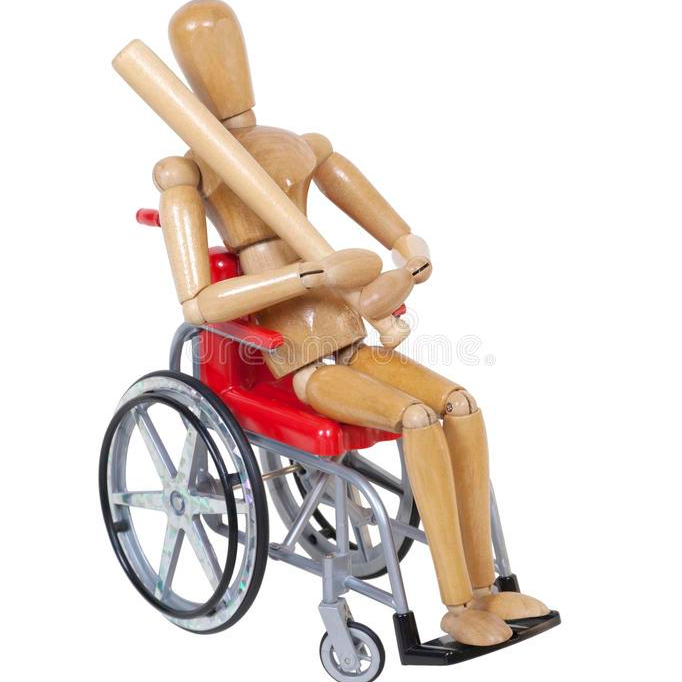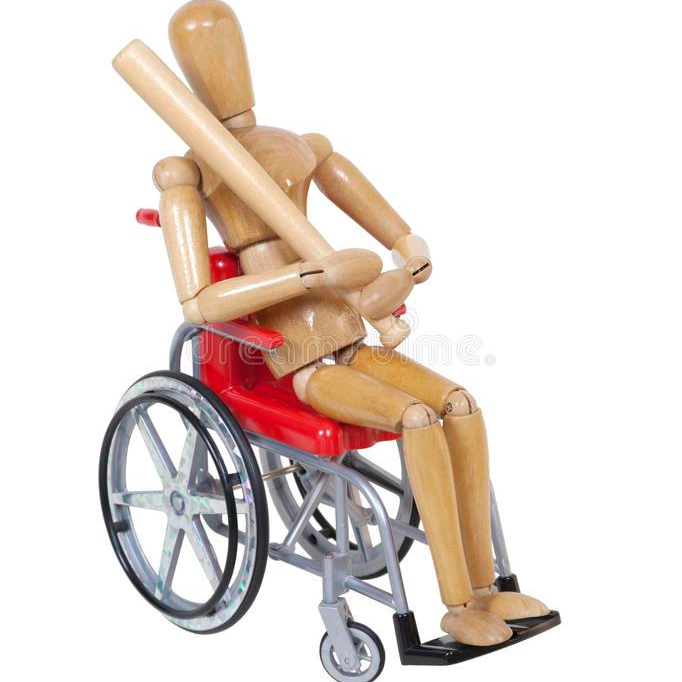(**Language Warning** – from actual quotes, so I had to keep it for the proper effect.)
Dad’s stay in the hospital for sepsis went on for 7 days. It took 5 of the 7 for the team to finally find a combination of antibiotics that beat into submission whatever rogue bacteria was afflicting him. The first night I actually came home (the Thursday after Christmas – the 27th), I broke down as I told Tim I really wasn’t sure he was going to make it: he’d seem to be OK for a while, but then his fever would spike or his blood pressure would tank. That night it had happened again in the early evening – he tried to eat his dinner but he was tremoring so badly that he couldn’t get a utensil to his mouth. He wasn’t able to hold a drinking cup with a straw steady – his arm jerked so violently that I was afraid he would poke himself in the eye. It was devastating and heartbreaking to see him try, yet not be able to do a thing that had been so simple and rudimentary only a couple of days before. So I sat there with my mom and I fed him – as much as he would eat.
I was friendly with every PCA (Patient Care Assistant? Associate?) and nurse who came onto his coverage, which helped when I was obsessive about knowing his vitals every time they were taken. I was vigilant on the timing of his Tylenol, his Midodrine (blood pressure booster) and watched his IV bags like a hawk (though truth be told, the PCA’s and nurses were equally vigilant). After a few days, the word must have telegraphed, because then every morning when I came in, they would fill me in on the latest of everything as soon as they saw me. Everyone was wonderful and kind and as attentive as they could possibly be considering that he was far from the only patient in their care.
I lost count of the number of times I drove mom back and forth to the hospital; how many trips we made to the cafeteria or the Au Bon Pain in the lobby, or god knows to the bathroom. I figured out after the first day that if I wanted hot water to wash my hands in the sink before I left the bathroom, that I had to turn the hot water on when I walked in the door – by the time I was done, it would be hot.
On New Years Day, my neighbors throw an annual open house party with a huge brunch, so I asked my mom if she’d like to join us there for a little while and to my delight she said yes. I figured a little socialization and change of scenery would be good for her, and we could head to the hospital after that. It was a beautiful, sunny, uncharacteristically warm day – I went down to pick her up and when we got back I tossed out the idea of walking to the neighbor’s. She liked that, so we made our way down the hill. She said she was feeling like she couldn’t get her legs going right and she’d been a little dizzy, so we went slowly. I introduced her to the neighbors and we had some brunch, and after another 45 minutes or so, I asked if she was ready to go. She said yes, so we began our trek back, which is a lot more taxing since it’s all uphill. Tim was on the neighbor’s back porch and had a clear view of us as we moved one careful step at a time. He texted me to ask if he should drive us up (he’d gone down in his truck) and by then, that seemed like an excellent idea. My mom usually got around great, so her inability to walk, and the dizziness, seemed strange, but I chalked it up to fatigue and stress.
Dad was discharged to rehab the next day. His stay lasted just about 2 weeks. Sometimes I brought mom to visit him; sometimes Hannah (their caretaker/companion) brought her, and early on, I made sure that Hannah got to see the work that the physical and occupational therapists were doing with him so she could help him once he came back home. He made remarkable progress, somewhat impelled, I think, by his roommate, Bob (not his real name), who was clearly not a short-term rehab patient.
Bob was sullen, cantankerous, and often paranoid, though he had his glimmers of sociability. I could see from some of the evidence in his space that he was a Vietnam Vet. It was apparent that he was at a much more advanced stage of dementia than my dad: verbal communications were trying – he was incapable of staying on point through a sentence, leaving his conversational partner working hard to infer where his thoughts were going. One morning, he engaged me, which was surprising since all I’d ever felt from him up to then was a malevolent energy. At first I was excited, but the “conversation” quickly devolved into an accusation that I, or my father, had stolen something of his (I could never quite get to what the missing item was); then we spent a disproportionately long time discussing a framed painting that hung on his wall, which he said a friend had done. Despite it not being my artistic cup of tea, I feigned admiration to shift the ground back to something closer to positive, and away from whatever it was he was missing.
He had an impressive collection of “coffee table” books featuring local history and architecture, which, that day, were spread out in a jumbled hodgepodge on his bed. He began to show me some of the photos, which I was finding intriguing, but we didn’t get very far, as his narrations meandered off to unrelated and disjointed places. There were one or two other male residents who would sometimes roll in to visit and chat with him and I was astonished at how their conversations seemed to flow – they still made no sense to this outside observer, but they appeared to make sense to them, like twins with a secret language. It left me wishing I knew more about how best to communicate with people with more advanced dementia. It also left me groping for a way to extricate myself and get the hell out of there. I hoped my dad wasn’t having too much of Bob’s suspicion and ire directed at him. It was hard to ask with them sitting in the same room. He hadn’t complained about it, so I presumed he hadn’t.
Late in the afternoon on the day before my dad was to be discharged, moments after arriving home from a visit with him, dad called me, clearly irritated: “Marcia? It’s your father.” (He always began phone calls like this. Even though for years we’d had the miracle of caller ID, and when he called, I answered the phone saying, “Hi Dad! What’s up?”)
Me, with my, “I’m making a little bit of fun of you now” tone to my voice: “I know it’s you! What’s going on? I just left you 15 minutes ago!”
“Marcia, I’m not sure what to do.” (Pause)
Me (thinking, “Oh, god. What now?”) “Well, maybe I can help – what’s happening?”
“I gotta take a leak, and my roommate Bob is sitting there in his wheelchair, and he won’t let me get by.”
Me (first pressing my lips together, really hard, to flatten my voice and stifle the smile tugging at the corners of my mouth): “Did you press the call button for the nurse?” (I also know that a catastrophe likely isn’t looming because they have him protected with adult diapers due to his advancing incontinence.)
“Yeah but they haven’t come IN yet.”
“Okay – let me see if I can call the nurse’s station and get them to come in and help.”
I hang up and call the facility, explaining the situation. They transfer me to my dad’s nursing station, and I relay the predicament that seems to be unfolding in room 234. The person on the phone calls out to the others on the floor to ask where Bob is. They know Bob. I hear an answer that he’s in the hallway. I ask if that means the hallway *outside* their room – I get an affirmative, though it sounds less than solid. I’m perplexed, but say, “OK – the situation must have already resolved itself. Good.” I hang up, deciding I’ll give it a few minutes before I call dad back to be sure he’s been able to get to the bathroom.
Three minutes elapse. Dad calls again: “Hello Marsh? It’s your father again.”
“Yeah dad. Is everything all set?”
“No! I gotta take a damn piss and my roommate Bob won’t get out of my way!”
(Now I’m confused, and I tell him so) “But I just talked to the nurse’s station. They said he was in the hallway. But you can’t get by him to get into the bathroom?”
(He responds loudly enough that if Bob is anywhere within 30 feet he can definitely hear. I experience a momentary beat of worry for dad’s safety that night.) “He’s blocking the damn door and I gotta take a leak! If he doesn’t get out of the way I’m gonna piss all over him!!”
A giggle briefly escapes but I tamp it down, forcing a couple of tears into my eyes, which I blink away and clear my throat. I don’t want him to think I’m not taking this seriously. I say, “I’m sorry dad – you should probably avoid doing that if you can. You have Depends on, right?”
(He doesn’t answer – he’s just revved up now.)
“Let me call the nurse’s station again. I can’t quite figure out why they think he’s out in the hallway.”
(Conceding slightly) “All right. This is the last time I’m going to call you about this.” (I get the sense that he thinks he’s been calling me about this for the last hour.) “If I have to piss on him, I’ll *piss* on him!!”
“Okay. I’ll call them again. Hang in there dad. One more night. You only have one more night. Tomorrow you come home. I’ll be there when they told me to, at 11 a.m. sharp.”
I call them again, to plead for someone to just go and double check – my dad seems truly agitated. They say they will. I choose to believe them, because I don’t want to drive back over there to play lavatory referee between my dad and a guy who seems to think I’m capable of pulling off an armored car heist. Tomorrow can’t get here soon enough.
The balance of the night apparently passes uneventfully. As promised, I’m there, actually 5 minutes early the next day, at 10:55. I walk into his room, where he’s sitting in his wheelchair, fully dressed, sneakers and jacket on. Bob is AWOL. Dad looks at me with something between true and mock annoyance: “Where you been? I’ve been sitting here since 8:00!”
“Whaddaya mean?” I respond with my own mock annoyance. “I’m here right when I said I would be – actually I’m a few minutes early! They told me I couldn’t get you until 11:00, remember? If I came earlier, they wouldn’t have let me take you!”
I’m not sure he believes me, but now I’m just focused on trying to be sure I have everything of his – clothes, toiletry items, etc. I’ve discovered that things have a way of disappearing around here, but if you put some elbow grease into it, you can usually find them. “I’m just gonna make sure all your clothes and everything are all here, okay? I have the list I filled out on your first day, so I’m just going to go through to make sure we have it all.” After a fair bit of searching and gentle staff interrogation, I track down all the clothing items, or at least, all the really important ones. I retrieve his Ziploc bag of toiletries from the bathroom, glad that Bob is out on recon so I don’t have to absorb any grand larceny accusations.
It takes me about 15 minutes but finally I feel like I have everything. I sign the discharge paperwork and add another packet of information about my dad’s diagnoses, medications, and activities to my backpack. One of the PT team wheels him out as I walk alongside them. When we get to the car, he locks the wheelchair, reminding dad what they’ve been teaching him about how to use his arms and hands on the arms of the chair to help himself up. I brought dad’s new walker and stashed it in the backseat, but don’t need to take it out – the PT just steadies him for the 2 steps to the car, carefully ensuring he has his balance as dad then reaches up for the grab handle inside the passenger door – such an important feature that never meant anything to me until I began transporting my parents everywhere over the past 8 months. He does a pretty fine job of lowering himself onto the passenger seat and coaxing his legs up over the bottom of the door opening – again, an unconscious bit of body mechanics that I’d never thought much about until I saw the effort and energy dad always had to expend for such a seemingly simple motion, every time he entered or exited a car.
As we made our way home in the cloudy but bright January glare, I made some pleasant small talk:
“So, you glad to be going home dad?”
(With a little sarcastic laugh): “Yeah – that roommate of mine – Bob. He’s a lunatic!”
“Yeah – he was a challenge. You were on the short-term rehab side of that place, but I don’t think he was a short-term patient. I think he’s been there for a while, and I think his dementia is pretty advanced.”
“It’s a good thing there wasn’t a baseball bat in that room. I’d have hit him in the fucking head!”
Now my laugh flies out of my mouth, full force: “HA!! Yeah – good thing, dad. Good thing.”





No comment yet, add your voice below!